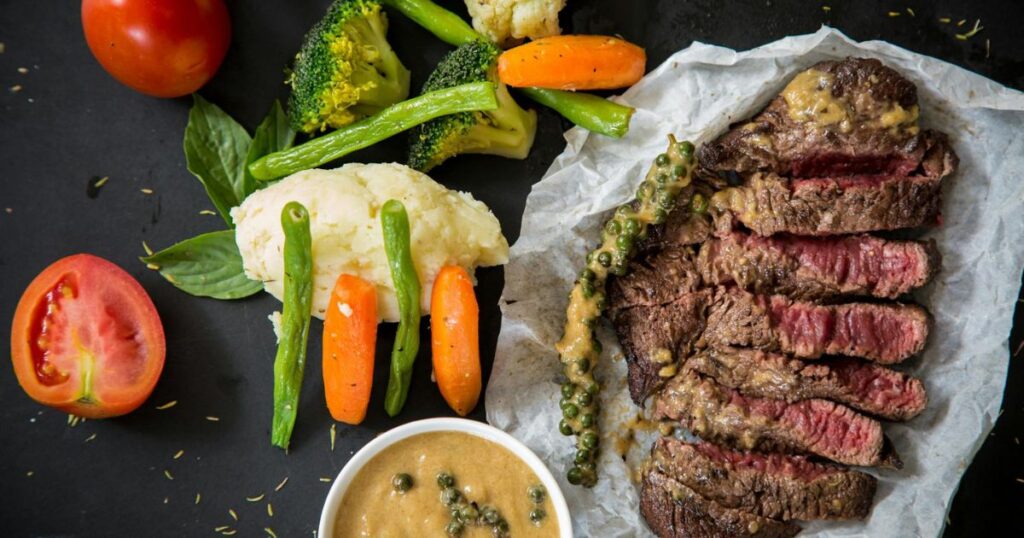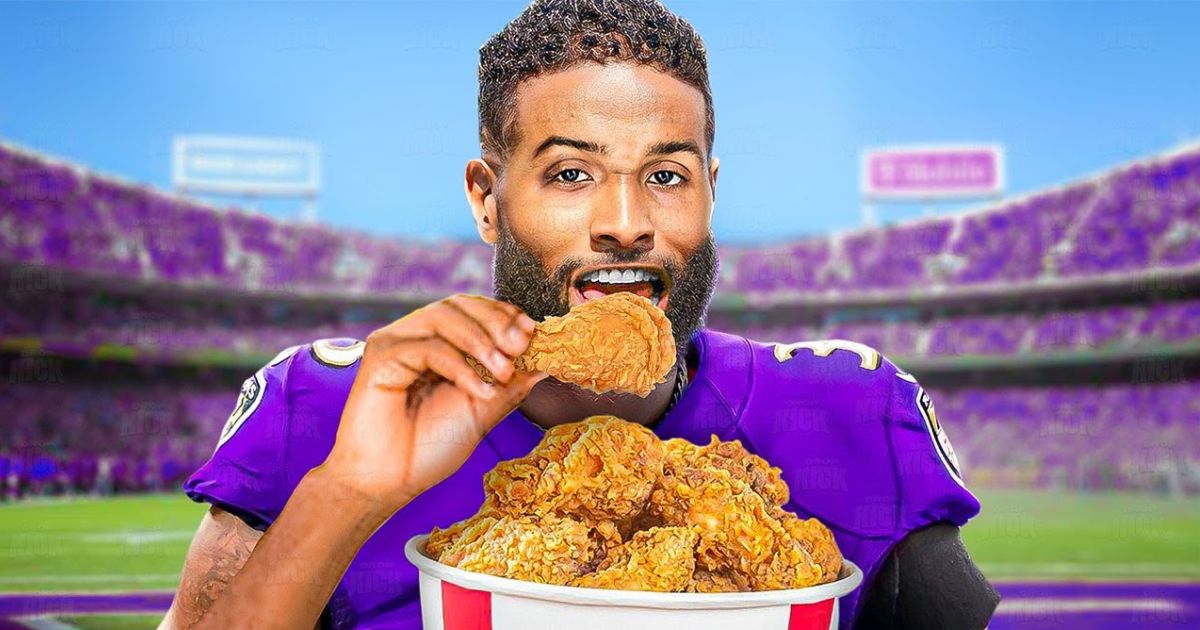NFL Players are an inspiration to many fans, not only because of their skills, and styles but also their fitness. And to know the secret of their fitness, Fans mostly want to know the diet of an NFL player. So, here we have discussed about the following in detail:
Quickly Navigate
- 1 What is the Typical Diet of an NFL Player?
- 2 The Importance of Nutrition in the NFL
- 3 Daily Caloric Intake
- 4 Macronutrient Breakdown
- 5 Meal Timing and Frequency
- 6 Pre-Game and Post-Game Nutrition
- 7 Hydration Strategies
- 8 Supplements and Performance Enhancers
- 9 Personalization and Team Nutritionists
- 10 Final note
What is the Typical Diet of an NFL Player?
The diet of an NFL player is an essential part of their training schedule, which is created to maximize performance, support recovery, and fuel strict workouts.
A careful approach to nutrition is necessary to meet the demands of professional football players and provide them with the energy, strength, and endurance they need to perform at the highest level.
The Importance of Nutrition in the NFL
For an NFL player, nutrition is essential because it gives them the energy and nutrients they need to perform at their best during the physically demanding season.
Good nutrition matters to an athlete’s whole training schedule because it promotes muscle growth, improves recovery, and helps avoid injuries.
Daily Caloric Intake
The Diet of an NFL player often needs to consume between 3,000 and 6,000 calories per day to meet their energy needs, which is a much higher caloric intake than the average person.
They will have enough power to maintain their muscular mass and engage in intense physical activity because of to their high-calorie intake.
Macronutrient Breakdown
To maintain muscle growth, energy levels, and general health, NFL players consume a balanced diet that includes proteins, carbs, and fats.
Proteins
Another diet of an NFL player is Lean meats, fish, eggs, and plant-based proteins are excellent sources of protein, which is necessary for both muscle growth and repair in NFL players.

Protein-rich meals are frequently consumed by athletes throughout the day, especially following workouts, to help in muscle recovery.
Carbohydrates
The diet of an NFL player primarily relies on complex carbohydrates, like those found in whole grains, fruits, and vegetables, to fuel their prolonged physical activity.
These carbohydrates help keep up endurance and performance levels by providing the fuel needed for exercise and competition.
Fats
Healthy fats are also essential; the best sources are olive oil, avocados, nuts, and seeds. They support cell function and offer a concentrated energy source.
These fats support general health and function by supporting the synthesis of hormones and the absorption of nutrients.
Meal Timing and Frequency
To guarantee a consistent supply of nutrients and energy throughout the day, NFL players frequently follow a set eating schedule that involves eating several meals and snacks.
This method delivers steady energy for training and recuperation while helping in blood sugar maintenance.
Pre-Game and Post-Game Nutrition
Meals eaten before a game are usually high in carbohydrates that are easily absorbed in order to boost energy levels; post-game nutrition, on the other hand, is more focused on recovery and should emphasize healthy fats and proteins.
Meals like oatmeal with fruit or a turkey sandwich may be consumed before a game, and meals like protein shakes, grilled chicken, and veggies are frequently consumed afterward to rebuild muscle and replenish glycogen stores.
Hydration Strategies
For NFL players, staying properly hydrated is necessary. It stresses keeping electrolyte balance and avoiding dehydration with frequent consumption of water and sports drinks.

Players can stay properly hydrated before, during, and after games by using hydration strategies that are customized to their needs and the environment.
Supplements and Performance Enhancers
An NFL player’s diet consists primarily of whole foods, but to close dietary gaps and improve performance, supplements like protein powders, amino acids, and multivitamins are frequently used.
These supplements are carefully selected to make sure they fit the player’s specific training needs and complement their diet.
Also read: Who Has the Hardest Job in the NFL?
Personalization and Team Nutritionists
Every diet of an NFL player has a much-customized diet, frequently created in conjunction with team nutritionists to meet specific needs, preferences, and objectives.
Nutritionists collaborate closely with athletes to track their food consumption, make necessary dietary modifications, and guarantee that each player’s diet complements their goals for both training and performance.
Final note
A typical diet of an NFL player follows a carefully designed meal that supports their demanding training schedule and competitive demands, highlighting the importance of nutrition in reaching their full athletic potential.
NFL players can make sure they are at their physical best both on and off the field by concentrating on a balanced intake of macronutrients, drinking enough water, and implementing customized meal plans.










